Sensory Enrichment Therapy is very effective in helping regulate the brain’s chemistry. Sensory Enrichment Therapy aims at re-wiring other key brain functions affected in Angelman Syndrome, including speech development, memory, fine and gross motor skills and sleep.
Angelman Syndrome (AS) is a rare genetic disorder that affects the nervous system, leading to developmental delays, severe speech impairments, movement and balance issues, and frequent smiling and laughter. Individuals with AS often require lifelong support to manage their symptoms and improve their quality of life.
How Sensory Enrichment Therapy Supports Individuals with Angelman Syndrome
At Mendability, we believe in the brain’s incredible capacity to grow and adapt.
Our Sensory Enrichment Therapy is designed to stimulate brain development and improve brain function through carefully crafted sensory activities.
Improved Communication:
So far, research on Angelman Syndrome (AS) has revealed that speech impairments are primarily due to the genetic and neurological disruptions caused by the deletion or mutation of the UBE3A gene on chromosome 15. This gene plays a crucial role in the normal functioning of neurons, particularly in the brain regions involved in motor control, learning, memory, and communication.
Motor control, learning, memory and communication are functions of the brain where we can stimulate development.
In clinical studies, it has been shown that Sensory Enrichment therapy can improve communication in 6 months by an average of 10%. This means that in a year, what used to be a major problem is now a minor problem, or what was a minor problem is now maybe a problem.

Enhanced Motor Skills:
Our sensory enrichment activities are designed to improve coordination, balance, and fine motor skills by creating new connections in the brain through novel sensory experiences.
Better Sleep Patterns
Sleep disturbances are common in individuals with AS. Our program includes sensory activities that help regulate the brain’s sleep-wake cycle, promoting better sleep quality and duration.
Reduced Anxiety and Behavioral Challenges:
Individuals with Angelman Syndrome may experience heightened anxiety and behavioral issues. Sensory Enrichment Therapy helps calm the brain by regulating sensory input, leading to a more balanced emotional state and a reduction in challenging behaviors.
Tailored Therapy Plans
Every individual with Angelman Syndrome is unique, which is why we offer personalized therapy plans. Our program is flexible and can be adapted to meet the specific needs and goals of each person, ensuring that they receive the most effective support possible.
Success Stories
We have seen remarkable progress in individuals with Angelman Syndrome who have participated in our program. From improved motor skills to enhanced communication abilities, our therapy has made a meaningful difference in their lives and the lives of their families.
Getting Started with Mendability
If you or a loved one is living with Angelman Syndrome and you’re seeking a supportive, evidence-based approach to therapy, Mendability is here to help. Our team of experts is ready to guide you through the process, offering personalized support every step of the way.
Sensory Enrichment Therapy for Angelman Syndrome
What is Sensory Enrichment Therapy?
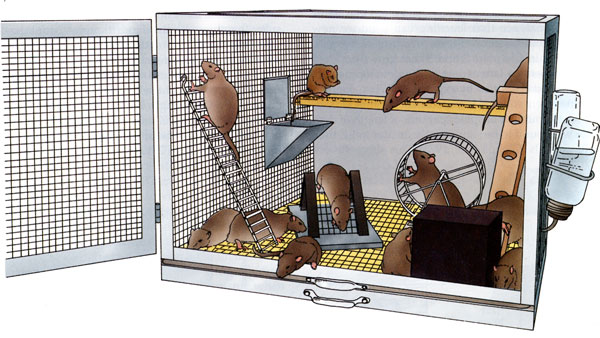
Environmental Enrichment Research
Sensory Enrichment Therapy is a subset of Environmental Enrichment, which is the field of neuroscience that looks at the plasticity of the brain and the types of experiences (cognitive, sensory, social, motor, etc.) that can have an impact on brain development and brain function.
With Sensory Enrichment Therapy we focus on sensory and motor experiences because they are the ones that have the most clinical evidence showing a positive impact.
Mendability developed Sensory Enrichment Therapy as program based on daily, short, hands-on games designed to trigger a boost in activity and growth in targeted brain functions. The program is updated every two weeks based on the participant’s response, progress, and goals.
ADHD and Environmental Enrichment
Researchers have developed mouse models of Angelman Syndrome by deleting or mutating the UBE3A gene, which mirrors the genetic deficiency seen in humans with AS. These mouse models exhibit many of the neurological and behavioral characteristics associated with Angelman Syndrome, such as motor dysfunction, learning and memory deficits, and altered synaptic plasticity.
- Utsunomiya R, Mikami K, Doi T, Choudhury ME, Jogamoto T, Tokunaga N, Ishii E, Eguchi M, Yano H, Tanaka J. Rearing in an Enriched Environment Ameliorates the ADHD-like Behaviors of Lister Hooded Rats While Suppressing Neuronal Activities in the Medial Prefrontal Cortex. Cells. 2022 Nov 17;11(22):3649. doi: 10.3390/cells11223649. PMID: 36429076; PMCID: PMC9688563.
- Coopersmith R, Weihmuller FB, Kirstein CL, Marshall JF, Leon M. Extracellular dopamine increases in the neonatal olfactory bulb during odor preference training. Brain Res. 1991 Nov 8;564(1):149-53. doi: 10.1016/0006-8993(91)91365-8. PMID: 1777817.
- Corredor K, Duran JM, Herrera-Isaza L, Forero S, Quintanilla JP, Gomez A, Martínez GS, Cardenas FP. Behavioral effects of environmental enrichment on male and female wistar rats with early life stress experiences. Front Physiol. 2022 Sep 26;13:837661. doi: 10.3389/fphys.2022.837661. PMID: 36225294; PMCID: PMC9548697.
- Batistuzzo A, de Almeida GG, Brás TS, Zucato VP, Arnold AJT, Giannocco G, Sato JM, Yamanouchi LM, Dias E, Lorena FB, do Nascimento BPP, Bianco AC, Ribeiro MO. Multisensory Stimulation Improves Cognition and Behavior in Adult Male Rats Born to LT4-treated Thyroidectomized Dams. Endocrinology. 2022 Sep 1;163(9):bqac105. doi: 10.1210/endocr/bqac105. PMID: 35914267; PMCID: PMC9354969.
- Groß C, Serrallach BL, Möhler E, Pousson JE, Schneider P, Christiner M, Bernhofs V. Musical Performance in Adolescents with ADHD, ADD and Dyslexia- Behavioral and Neurophysiological Aspects. Brain Sci. 2022 Jan 18;12(2):127. doi: 10.3390/brainsci12020127. PMID: 35203891; PMCID: PMC8870592.
- Hobbiesiefken U, Mieske P, Lewejohann L, Diederich K. Evaluation of different types of enrichment – their usage and effect on home cage behavior in female mice. PLoS One. 2021 Dec 23;16(12):e0261876. doi: 10.1371/journal.pone.0261876. PMID: 34941949; PMCID: PMC8699725.
- Chan YS, Jang JT, Ho CS. Effects of physical exercise on children with attention deficit hyperactivity disorder. Biomed J. 2022 Apr;45(2):265-270. doi: 10.1016/j.bj.2021.11.011. Epub 2021 Nov 29. PMID: 34856393; PMCID: PMC9250090.
- Ball NJ, Mercado E 3rd, Orduña I. Enriched Environments as a Potential Treatment for Developmental Disorders: A Critical Assessment. Front Psychol. 2019 Mar 6;10:466. doi: 10.3389/fpsyg.2019.00466. PMID: 30894830; PMCID: PMC6414413.
- Normann MC, McNeal N, Dagner A, Ihm E, Woodbury M, Grippo AJ. The Influence of Environmental Enrichment on Cardiovascular and Behavioral Responses to Social Stress. Psychosom Med. 2018 Apr;80(3):271-277. doi: 10.1097/PSY.0000000000000558. PMID: 29360667; PMCID: PMC8283515.
Human translation
What we have done is to translate animal model protocols into short, fun, hands-on games you can do at home, at school or in your treatment facility.
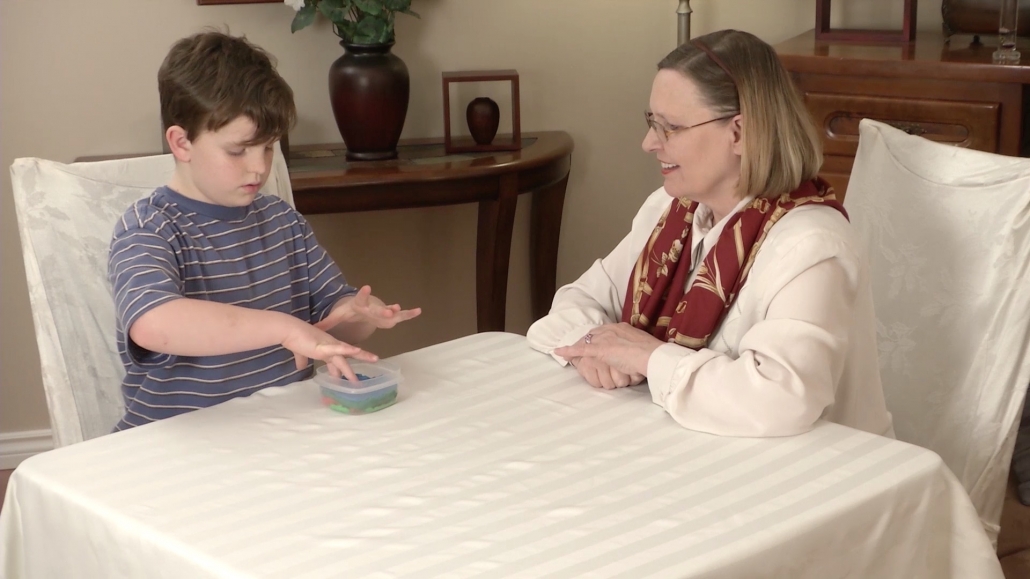
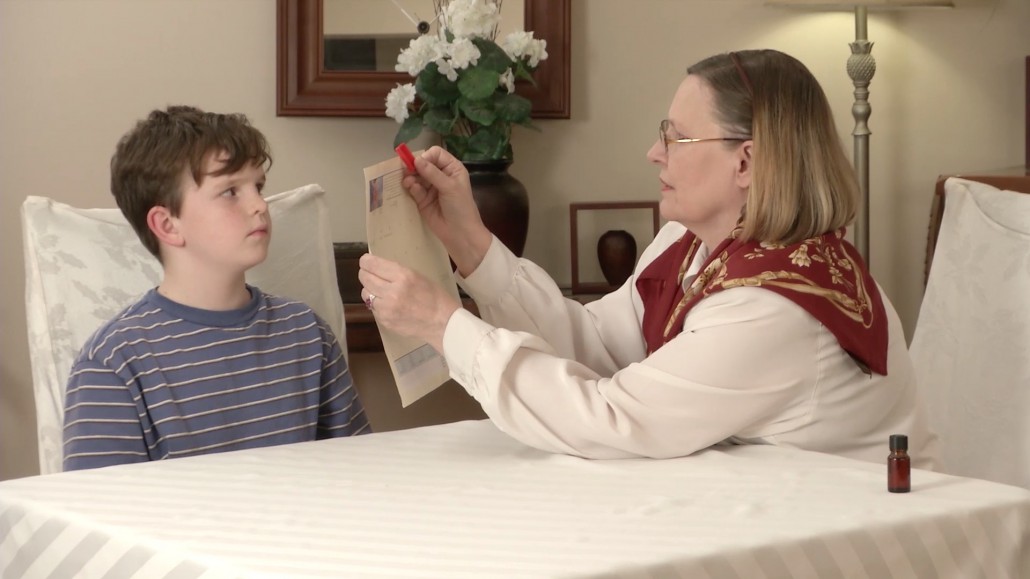
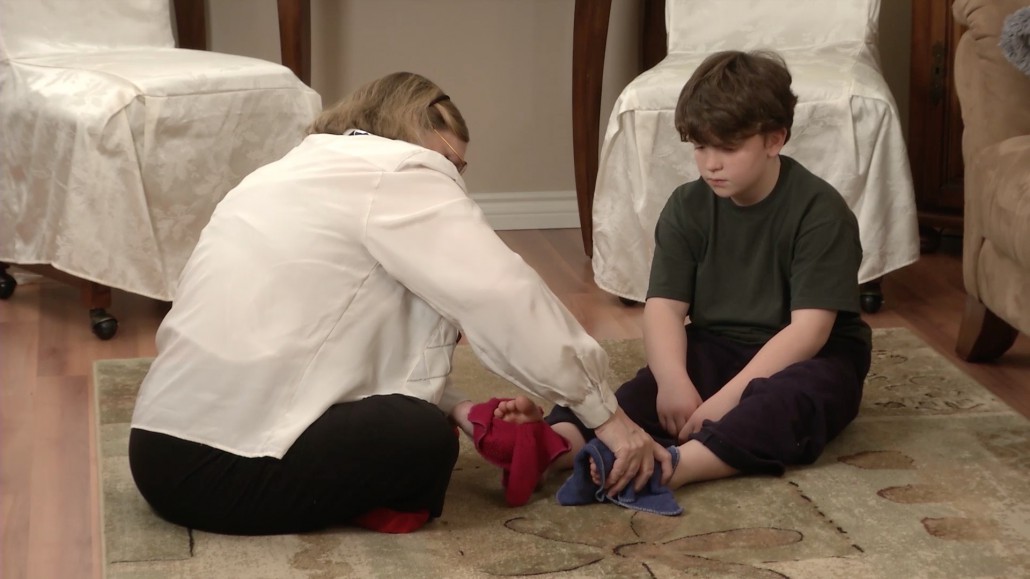
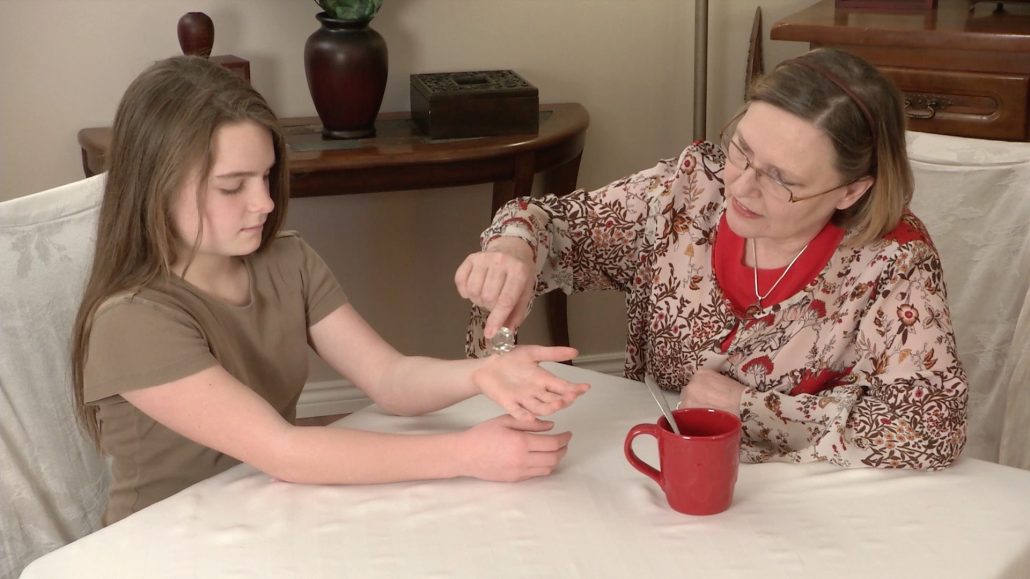
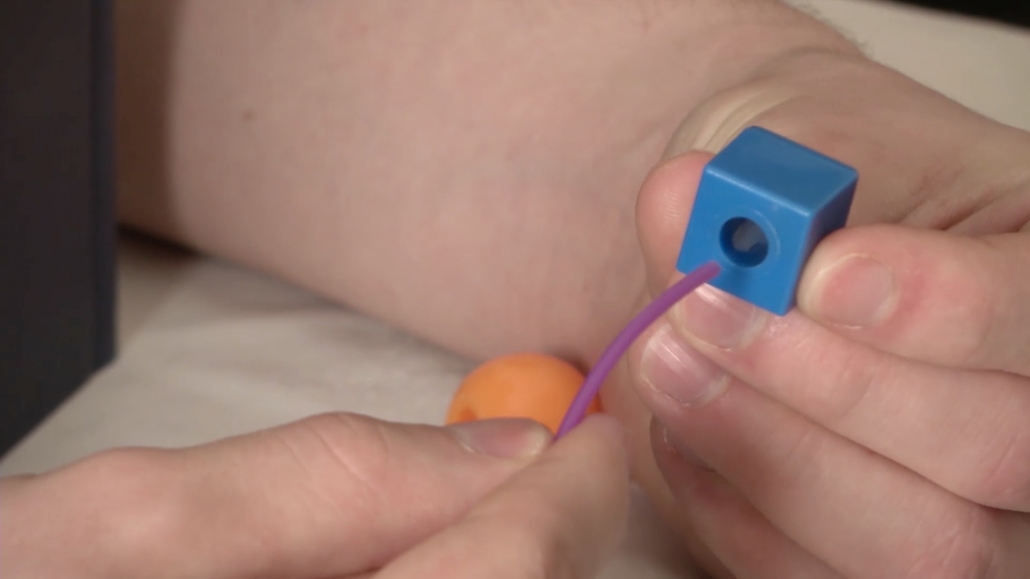
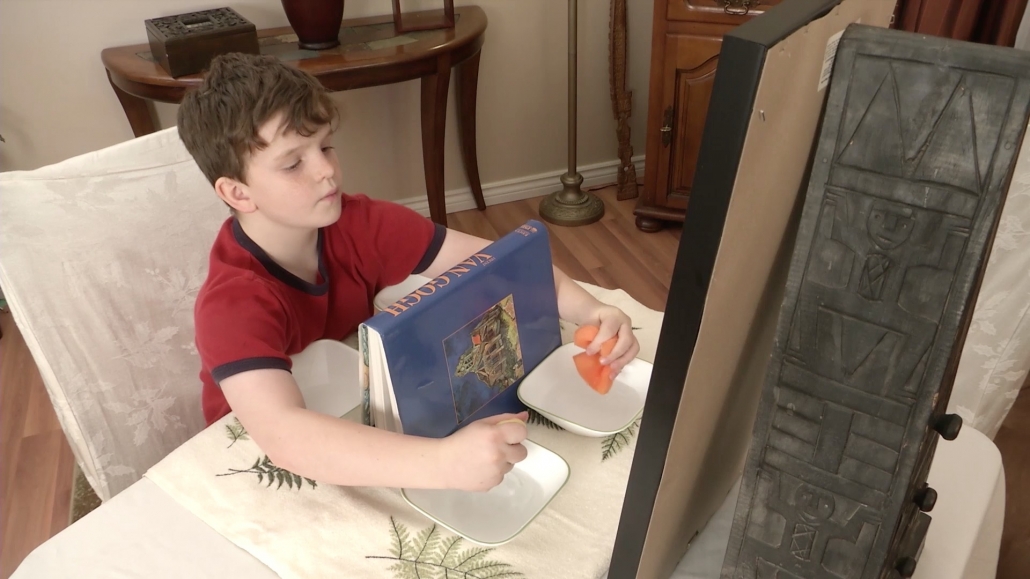
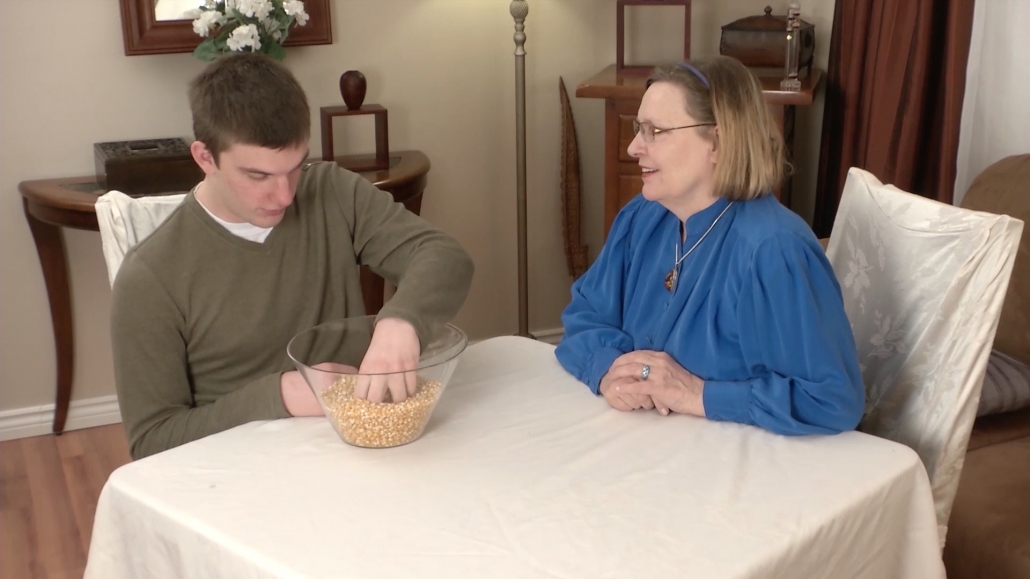
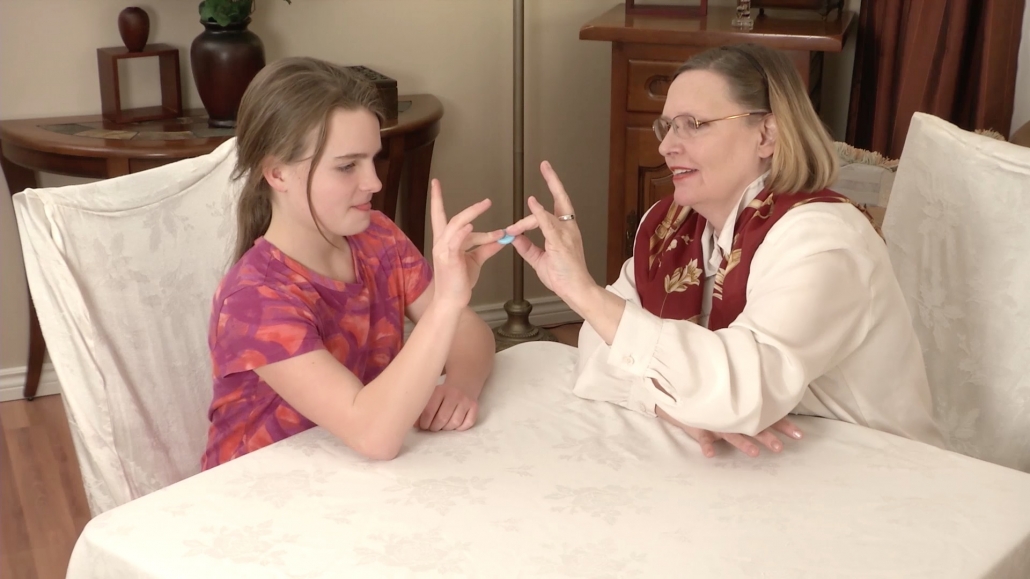

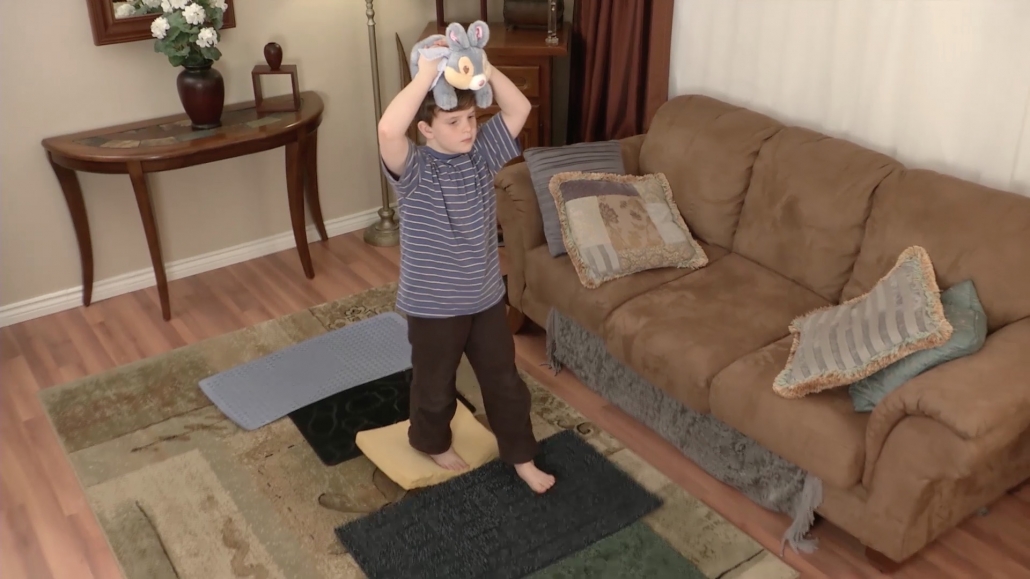
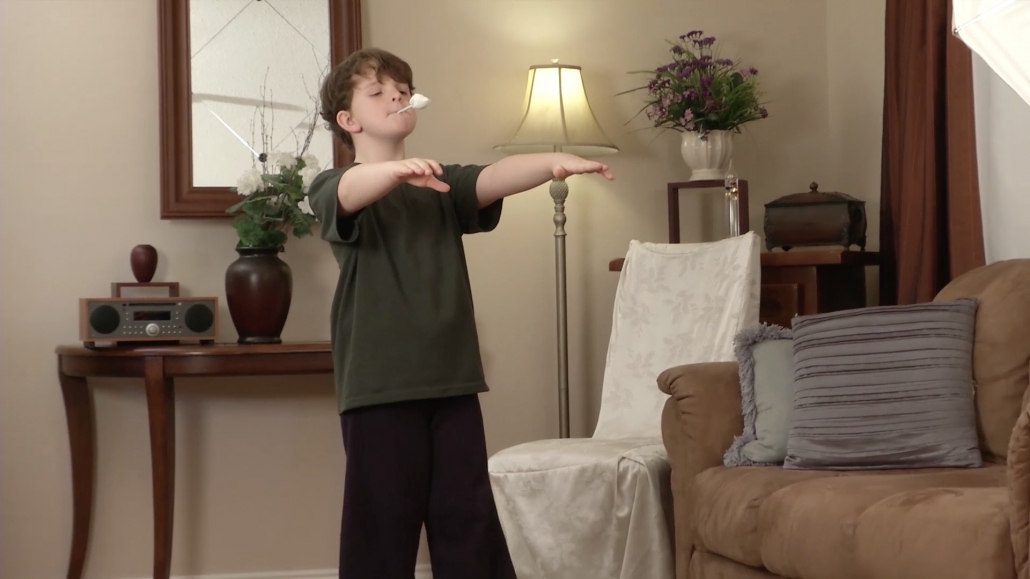
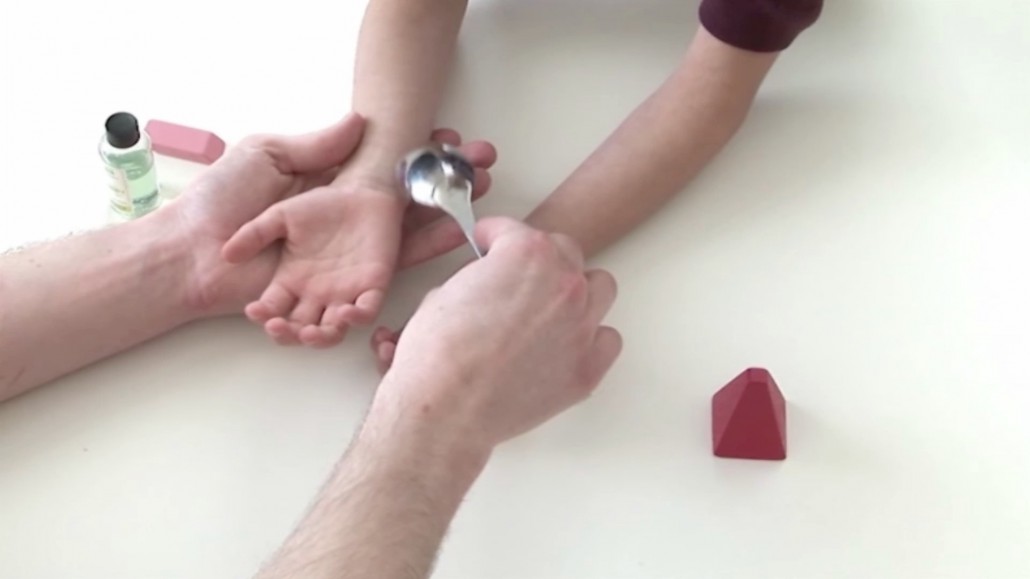
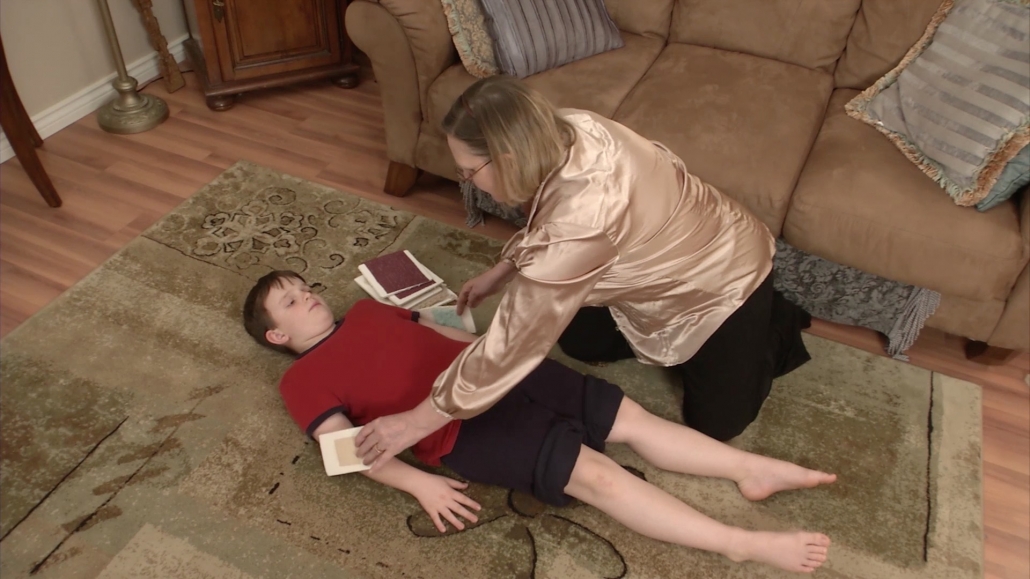
More questions? More examples of games?
Schedule a Call
Results
Randomized Controlled Trials
Sensory Enrichment Therapy was the subject of randomized controlled trials with populations of children with autism.
There is currently a RCT looking at the effectiveness of Sensory Enrichment Therapy to help children with ADHD.
Finally, an intent-to-treat analysis looked at 1,002 Mendability clients, some of whom were diagnosed with Angelman Syndrome.
More studies are being conducted with adults with addiction, youth with trauma, and special education.
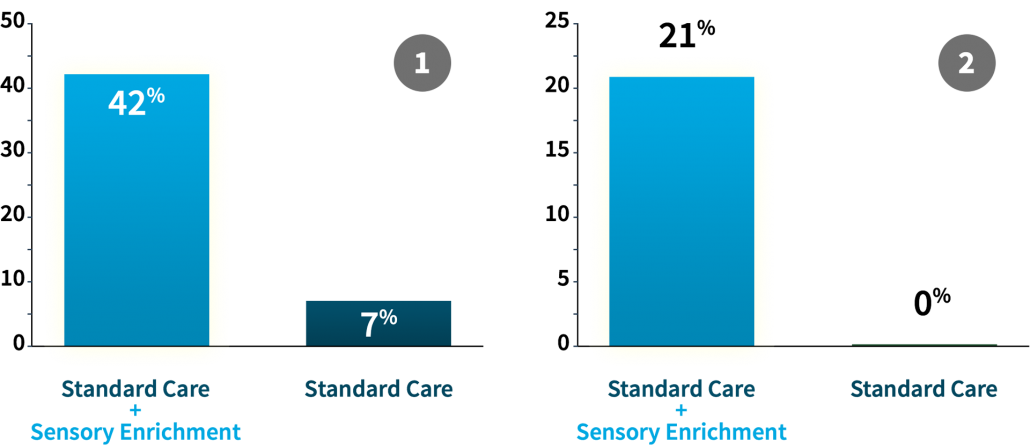
Testimonials
“I went to the library where we spent about 2 hours, and both of the girls were happily reading while staying in their seats. In our prior visits, the oldest one just roamed and ran around the library while I chased her. This time, I was pleasantly surprised by how long my oldest daughter (4) sat and stayed focus on reading. This has never happened before!”
– Mary M. (Texas)
parent of a 4-year-old-girl
“My major concern for [my son] was his behaviour while waiting at airports and on the plane. I want to share my joy – our trip was really fun filled, and the main reason was that there was a lot of change in [my son’s] sensory needs. Last year’s trip was miserable, his aggression was so bad that my arms were bruised due to his biting.
– Ayesha A. (Pakistan)
[This year he] behaved so well. He was very calm in crowds, tolerated sounds and noises for sometime. He didn’t bother us at all during the flights and at the airports. This is all due to Mendability!”
parent of a 10 year old boy
Attention Span
One of the first steps in any of our Sensory Enrichment Therapy programs is to help the brain regulate its chemistry. There are many protocols from the world of environmental enrichment that have shown benefits in helping the brain with regulating dopamine, serotonin and norepinephrine levels.
For example, a simple smell can boost your dopamine levels for up to three hours.

It is your own dopamine!
And it’s your brain responding to a nonintrusive, pleasurable input from the environment.
We have seen that, over time, the effects are more and more significant. We believe the brain gradually re-wires its dopamine system to become more and more self-sufficient. This explains why the behavior and mood of our clients who struggle with impulsivity and inattention, become more and more intentional in completing their projects and more able to listen to instructions.
As we mentioned earlier, attention span is one of the top 5 areas where parents report the most progress within the first few weeks of our program.
Other “symptoms”
Angelman Syndrome is a complex disorder with many aspects that vary over time. Our program adapts every two weeks to each person’s unique recovery path. While we almost always start with a focus on brain chemistry regulation, within a few weeks, programs diverge quickly. Our expert system is designed to follow you along, designing sets of games for you to do that are design to support growth and re-wiring in the brain functions that are the most ready to growth and heal.
For many, sleep is a key area of discomfort and sleep is one of the best times for the brain to repair itself. It makes sense, therefore, that the brain would work on improving the quality of its sleep mechanisms.
Sleep is also one of the top 5 areas where clients report the most progress in the first few weeks of Sensory Enrichment Therapy.

Areas we track in Angelman Syndrome
When you start a Mendability program, you will be asked to complete a baseline questionnaire, to score 200-400 questions on a scale of 1 to 5, from “Severe Problem” to “Not a Problem”. This will help create a unique profile for the participant.
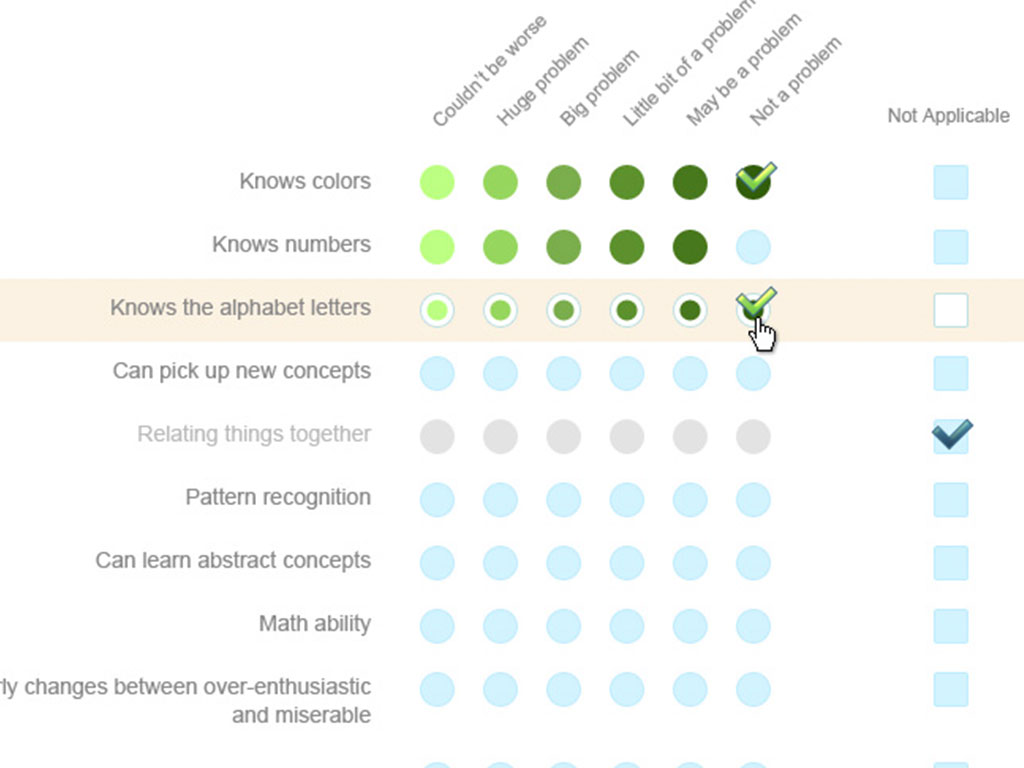
Every two weeks, when it is time to update the program, you complete a progress report that indicates how much progress you have seen in the past 2 weeks.
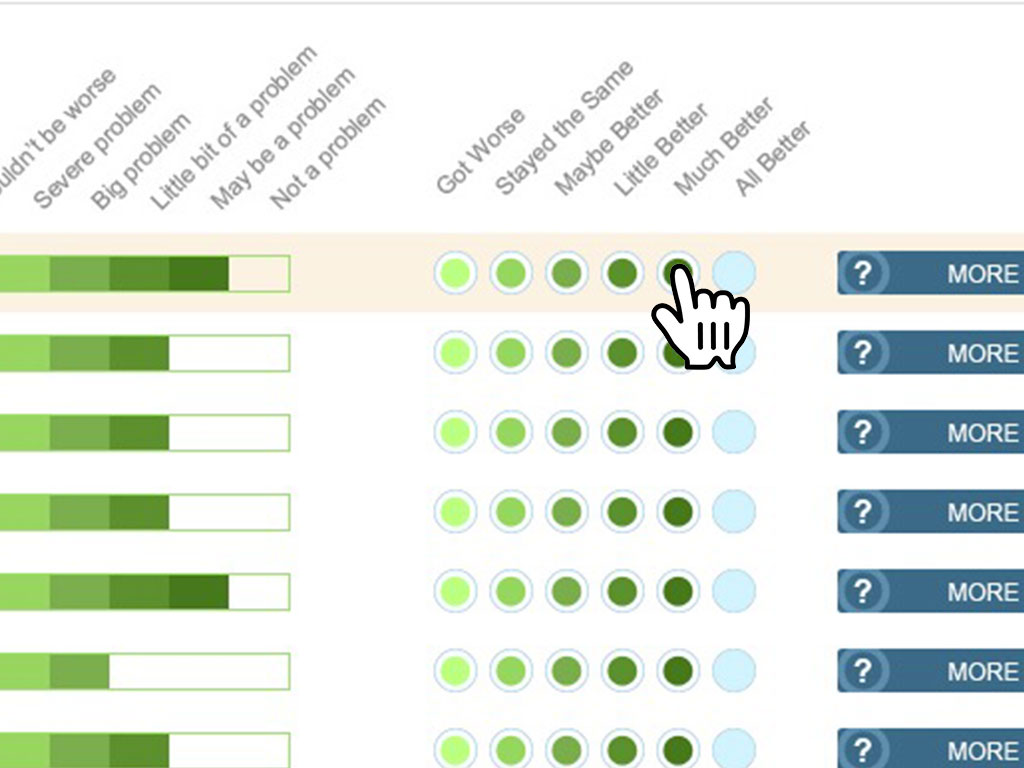
Note: In Schools where tracking precisely is not always possible, we can track 25 questions instead.
Shortlist of questions for Angelman
Attention Span
- Completes instructions
- Can keep focus
- Squirms or fidgets
- Pacing
- Needs reminders
- Gets bored easily
- Planning Ahead
- Finishes what they started
- Independently prepares for things
- Can’t sit still
- Accomplishes complicated tasks
- Absent-minded
- Loses or misplaces things
- Has trouble deciding things
- Sitting still and waiting
Social Skills
- Eye contact
- Waiting for a turn
- Interrupting a lot
- Acknowledging people around him/her
- Ability to entertain himself/herself
- Making friends
- Seems unable to pick up common social cues
- Playing with other persons of the same age
- Awkward in social situations
- Can remember people’s names
- Inappropriate signs of affection to loved ones
- Showing inappropriate signs of affection to strangers
- Can remember people’s faces
- Lying or stealing
- Making threats
- Stubborn, can’t let it go
- Inflexible opinions
- Seeking attention
- Sharing toys
- Seems to not think before speaking
- Obsessed with being in control
- Shy
- Being a sore loser
- Suspicious or mistrusting of others
Communication
- Sharing thoughts with words
- Pronunciation
- Vocabulary
- Repeating things over and over
- Communicating needs with or without words
- Uses the wrong words for things
- Responding to his/her name
- Stuttering
- Complex skill
- Understands what others are saying
- Seems to just repeat what he/she heard
- Uncontrolled swearing
Learning
- Dressing self
- Learning new concepts
- Identifying Patterns
- Retells stories
- Understands what is going on in a story
- Reads with expression
- Guesses words instead of sounding them out
- Can learn abstract concepts
- Understands concepts of time
- Enjoys being read to
- Understands denominations of money have different value
- Basic Math Skills
- Spelling
- Understands what is not seen still exists
Memory
- Can remember instructions
- Can remember what happened yesterday
- Visual memory
- Can give directions to where they put something
- Can remember directions to go find something
- Can remember dates
- Can remember facts
- Can remember events
- Can remember important events years ago
- Can remember sequence of numbers
- Can remember sequence of letters
- Can remember songs
Sleep
- Falls asleep right away
- Has difficulty going back to sleep
- Won’t stay asleep
- Wakes up grumpy
- Sleeps in own bed
- Sleeps in
- Wakes up screaming at night
- Falls asleep unexpectedly
- Complex skill
- Has bad dreams
Mood & Behavior
- Giving in to cravings
- Can not interrupt favorite activities
- Frequency of tantrums
- Expressing emotion
- Duration of tantrums
- Unexplained bursts of laughter
- Thrashing
- Low energy levels
- Hates spills on their clothes
- Aggressive toward self
- Can’t be away from primary caregiver
- Severity of tantrums
- Feels like mind is in a fog
- Seems obsessed with one topic
- Unreasonable fears
- Unable to discard broken or worthless things
- Cannot part with favorite blanket or object
- Compulsive spending
- Preoccupied with germs
- Suicidal thoughts / side effects
- Impulsive
- Shouting instead of verbalizing
- Feeling appropriate emotions
- Getting over-excited easily
- Screaming and screeching
- Becoming discouraged easily
- Ability to relax
- Whining and complaining
- Feeling serene
- Crying
- Aggressive toward others
- Gets angry quickly and a lot
- Can’t snap out of a bad mood
- Regularly changes between over-enthusiastic and miserable
- Tendency to feel depressed
- Obsessed with perfection
- Panic attacks
- Feeling guilty for no real reason
- Preoccupied with tidiness
- Obsession with death
- Repetitive mannerisms
- Watching the same show over and over
- Repetitive motion all the time
- Flaps hands when excited
- Repetitive motion can be interrupted
- Taps, clicks, pops, sniffs, or other tics
- Grinding teeth
- Twitches, or other motor tics
- Rocking back and forth
Eating
- Tries new foods
- Tolerates different food textures
- Leaves dinner table
- Use of utensils
- Eats a variety of foods
- Accepts food
- Consistency of BM
- Regular bowel movements
- Gagging
- Flatulence
- Eats too little
- Can feed himself/herself
- Eats too much
- Ability to chew
- Ability to swallow
Sensory Processing
- Sensitive to loudness
- Sensitive to busy loud crowds
- Cannot handle transitions
- Doesn’t prepare for cold or warm
- Sensitive to certain tastes
- Accepts to wear a blindfold
- Sensitive to electric motor sound
- Sensitive to certain voices
- Sensitive to certain textures
- Hates brushing his/her teeth
- Seems insensitive to cold
- Bothered by water in his/her ears
- Sensitive to clothing
- Sensitive to light
- Does not seem to feel pain
- Sensitive to certain smells
- Sensitive when touched
- Quality of the sense of smell
- Sensitive to feeling motion
- Can discern different flavors
- Can breathe in deeply
- Hates wearing shoes
- Sensitive to moving objects
- Sensitive to dark
- Ability to detect sounds
- Looks flushed and overheated
- Can feel and locate light touch
- Sensitive to silence
- Experiences unexplained tingling sensation
- Can see well (with vision aids if needed)
- Sweating suddenly for no reason
- Seems unaware of threatening situations
- Sensitive to certain pitches
- Hates having hair cuts
- Scared of heights
- Hears things that aren’t there
- Sees things that aren’t there
- Is in physical pain
Self-Awareness
- Imaginary play
- Unaware of surroundings
- Unaware of self
- Talking to himself/herself
- Bladder control at night
- Daytime bladder control
- Daytime bowel movement control
- Doesn’t want to shower or bathe
- Bowel movement control at night
- Grooming and caring for appearing neat
- Things don’t seem real to him/her
- Experiences “déja-vu”
- Real life seems like it is a dream
- Talking to people who are not there
- Personality Trait
- Daydreaming
Fine Motor Skills
- Tying shoelaces
- Tongue control
- Can keep his/her eyes on a moving target
- Control of fingers of left hand
- Control of fingers of right hand
- Strength of neck
- Drooling
- Writing penmanship
- Stays in the lines when coloring
- Drawing ability
- Scissor control
- Control of facial expression
Gross Motor Skills
- Posture
- Muscles are limp
- Ability to do squats
- Strength of left/right hand
- Riding a tricycle
- Climbing skills
- Catching skills
- Ability to do push-ups
- Clumsiness
- Throwing skill
- Ability to do sit-ups
- Riding a bicycle
- Kicking a ball
- Control of left/right leg
- Can go down stairs
- Control of left/right arm
- Involuntary movement occurs in the body in general
- Running
- Walks into things
- Balance on the left/right leg
- Jumping
- Walks on tippy toes
More questions? How to get Started?

